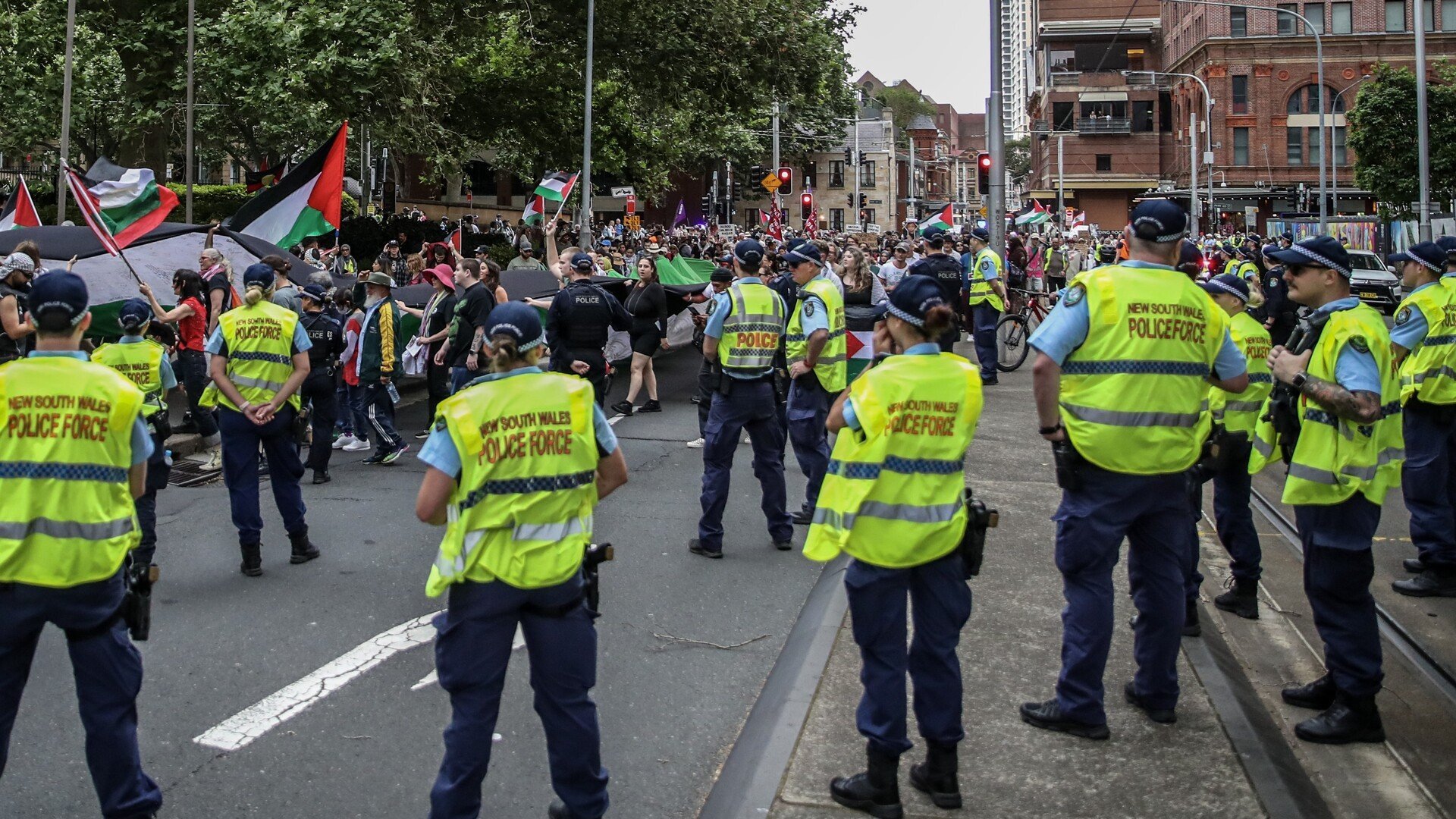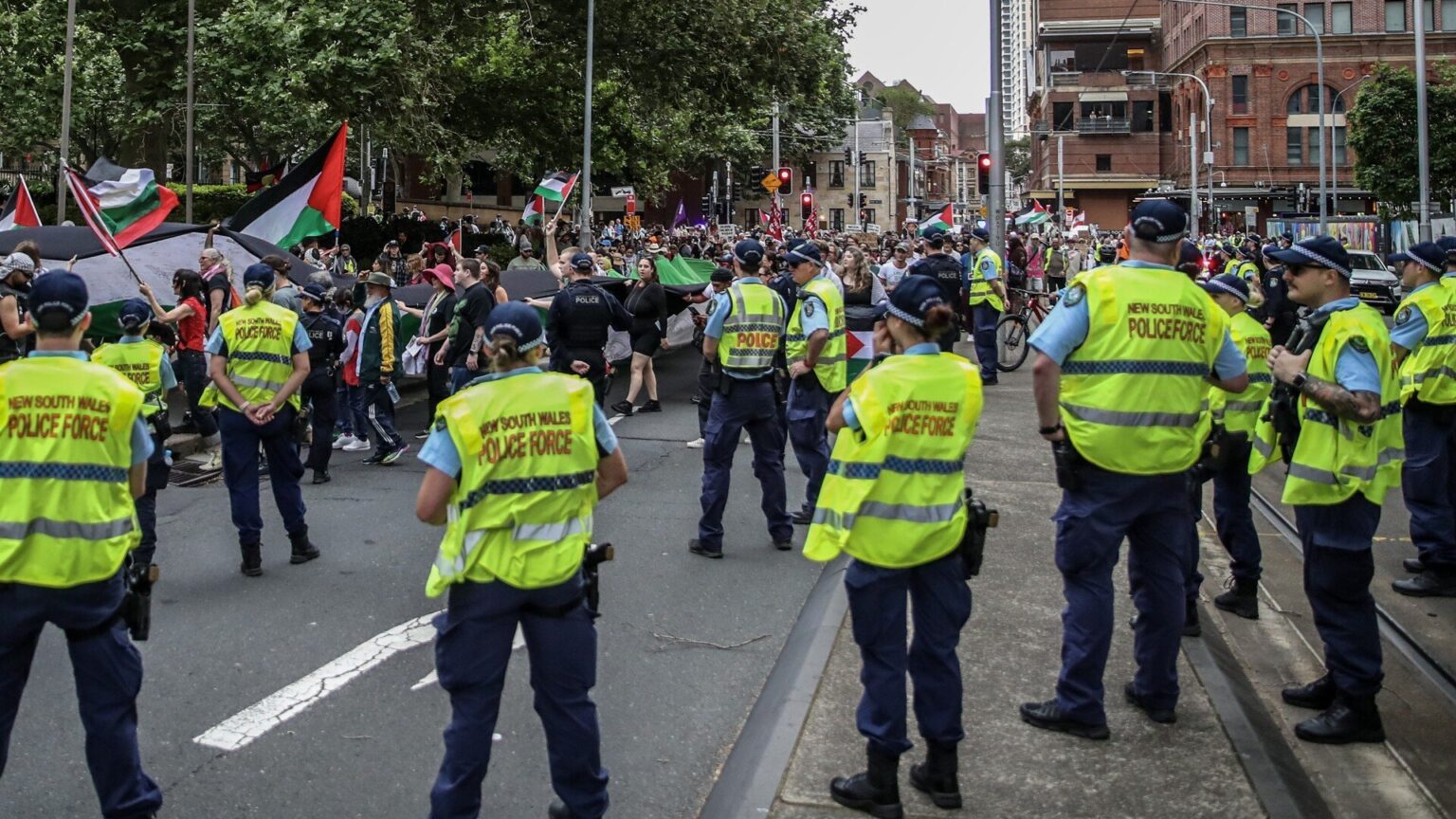PROTEST LAWS OVERTURNED: NSW Government Suffers Crushing Defeat as Court Rules Amendments ‘Invalid’ in Major Win for Palestine Action Group
- Palestine Action Group challenges NSW Government’s protest law amendments in Supreme Court and WINS
- Justice Anna Mitchelmore declares laws limiting protests near places of worship ‘impermissibly burdens the implied constitutional freedom’ of political matters
- Premier Chris Minns vows to consider judgment, but Palestine Action Group hails victory as a ‘win for democracy’ and a blow to the government’s ‘war on the people’
In a devastating blow to the NSW Government, the Supreme Court has ruled that amendments to protest laws introduced earlier this year are invalid. The Palestine Action Group, led by Josh Lees, challenged the laws, which were designed to crack down on hate speech and limit protests near places of worship. However, Justice Anna Mitchelmore declared that the amendments ‘impermissibly burdens the implied constitutional freedom of communication on government or political matters’.
The court’s decision is a major victory for the Palestine Action Group, which argued that the laws stretched police powers beyond legitimate bounds and would have a chilling effect on free speech. Mr Lees, who was outside the court, said the ruling represented a ‘failure’ for Premier Chris Minns and a ‘win for the Palestine movement and for everyone who ever might want to protest for anything in this state’.
Premier Chris Minns expressed disappointment at the outcome, but vowed to consider the judgment. However, he warned that the decision did not mean there was ‘free reign’ outside places of worship, pointing out that other components of the laws, including those making it a crime to impede or harass people accessing a place of worship, still stood.
CEO of the NSW Jewish Board of Deputies Michele Goldman described the outcome as ‘deeply disappointing’, saying that places of worship were ‘sacred’ and deserved to be protected. However, Greens Upper House MP Sue Higginson hailed the decision as a ‘humiliating loss’ for the premier, saying it showed that the government had ‘crossed a bridge too far’ in its attempts to restrict free speech.

The court’s decision centred on the issue of ‘locational overlap’ between places of worship and areas where protests commonly take place. Justice Mitchelmore found that the amendments would have a ‘marginal burden’ on the implied freedom of communication, but that this burden went ‘further than the constitutionally valid baseline in a meaningful way’.
The Palestine Action Group’s victory is likely to embolden other protest groups and spark renewed debate about the balance between free speech and public safety. As Mr Lees said outside the court, ‘Let our democracy thrive… Let the people protest and let our democracy thrive with all of the voices of peace and justice and protection that we see on our streets.’

